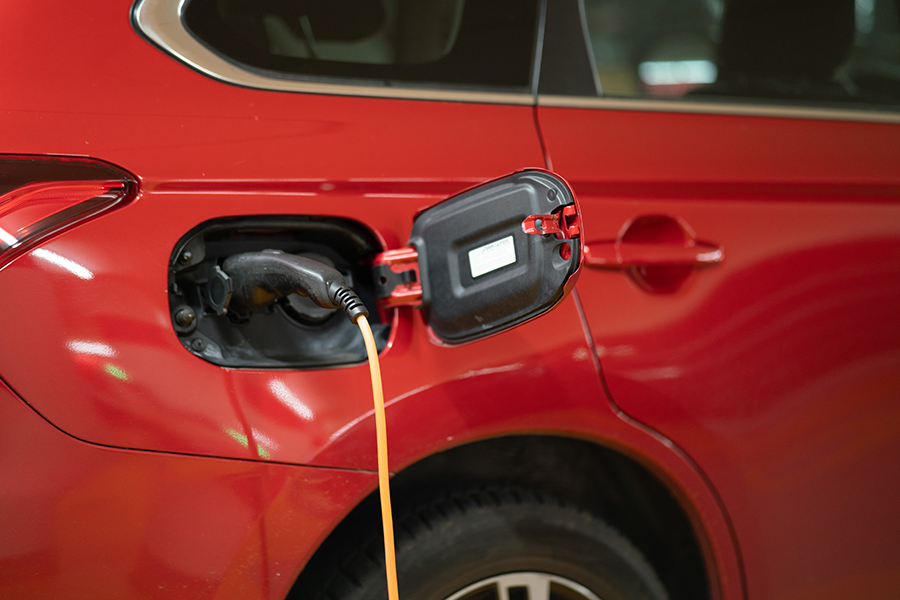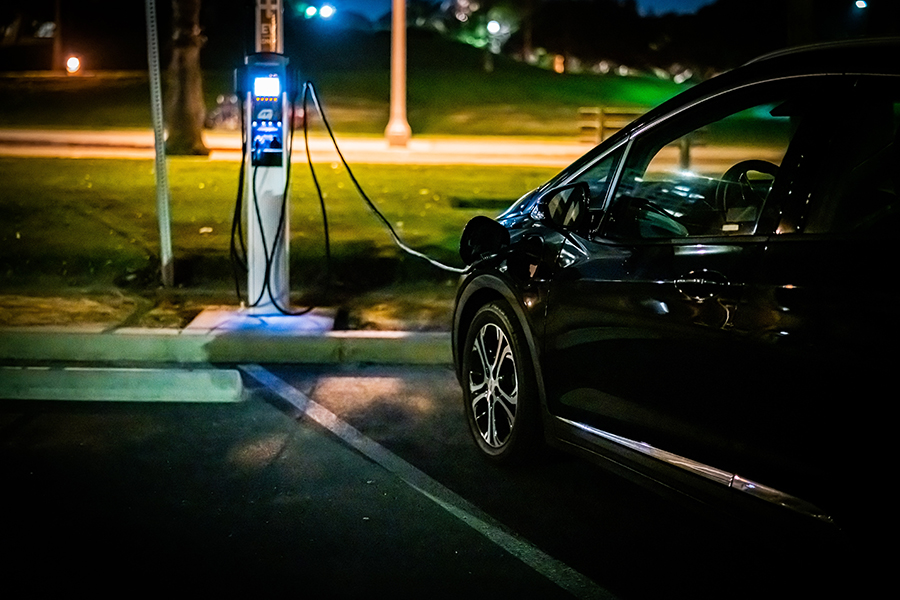The State of Electric Vehicle Charging in Wisconsin
ramaker insights
The State of Electric Vehicle Charging in Wisconsin
More electric vehicles are hitting the road each year—and more EVs means higher demand for electric vehicle charging stations. On average, electric vehicle sales in the United States have increased by more than 40 percent per year since 2016. But this growth doesn’t mean that everyone is riding the EV wave. Access to fast chargers and range anxiety are two of the biggest barriers to widespread EV adoption.
The point? Installing more electric vehicle charging stations isn’t just about keeping pace with the production of new EVs. (Though that is very important.) It’s also about making EVs accessible to more populations.
In this post, we take a closer look at electric vehicle charging in Wisconsin. Is EV adoption in Wisconsin in line with national trends? And how much infrastructure has the state invested in so far? By addressing these questions, we outline key factors that developers and business owners in Wisconsin should consider before installing EV charging stations.

Electric Vehicle Adoption in Wisconsin
The Badger State leads the nation in cranberry production. The state has not, however, led the country’s electrification charge.
Wisconsin ranks in the middle of the pack for number of public electric vehicle charging station locations. As of August 2022, the state had installed just over 400 public Level 2 and Level 3 charging stations, according to the Alternative Fuels Data Center. If you remove chargers that are only available to Tesla users from that data, the number of public charging stations is closer to 300.
Here’s the thing: The state’s current distribution of EV chargers is not large enough to reduce range anxiety of current users, let alone handle anticipated future demand. While EVs currently represent a small percentage of vehicles on the road in Wisconsin, adoption has risen steadily over the past five years. Per the Wisconsin Department of Transportation, the state registered 8,909 electric vehicles in 2021, an increase of more than 44% from 2020.
National EV adoption forecasts maintain that electrification is an inevitability, not a short-term trend. Goldman Sachs predicts that electric and hybrid vehicles will account for nearly half of all vehicles on the road by 2040. With increased demand for EV charging infrastructure and incoming federal funding, Wisconsin is positioned to increase access for current and future EV drivers.
Read more: We need more EV chargers. Here’s how MEP engineers can help.
In anticipation of more electric vehicles hitting Wisconsin roads, the state has already begun to expand access to EV charging stations outside of metropolitan centers like Madison and Milwaukee. Wisconsin recently announced a collaboration with Illinois, Indiana, and Michigan: The Lake Michigan EV Circuit Tour. Hailed by some as an electric Route 66, the initiative will bring electric vehicle charging stations to Lake Michigan’s 1,100 miles of drivable shoreline. Participating states will partner with private charging companies and other project partners to deliver stations near local attractions.
While the state plans to continue to make meaningful investments in EV chargers moving forward, public chargers may not be enough for future EV drivers. A recent McKinsey & Company report estimates that the US will need 1.2 million public EV chargers and 28 million private EV chargers by 2030. This means commercial, residential, and retail developers in Wisconsin have an opportunity to attract customers with a desirable (and convenient) amenity: fast charging stations.
The bottom line: Wisconsin may need a reliable network of public and private EV charging stations to keep up with demand and increase EV adoption.


The future of electric vehicle charging in Wisconsin
Both the private and public sectors are betting that electrification is the future, with transportation currently accounting for the largest share of greenhouse gas emissions that contribute to climate change.
Major automakers like Ford, General Motors, Mercedes-Benz, and Volvo have pledged to phase out gasoline-powered vehicles by 2040. In February 2022, the U.S. Department of Transportation and Energy announced nearly $5 billion will be made available over the next five years through the National Electric Vehicle (NEVI) Formula Program. This infrastructure funding aligns with President Biden’s goal to install 500,000 electric vehicle charging stations across the United States by 2030 to cut national carbon emissions.
What does that mean for EV charging infrastructure in Wisconsin? The state stands to receive more than $78 million to expand its electric vehicle infrastructure as a result of the federal bipartisan infrastructure law and the NEVI Formula program.
The state’s plan for said funding, which was submitted in August 2022, proposes goals for creating an interconnected electric vehicle transportation charging network in Wisconsin. Namely, the state aims to deploy fast charging stations in accordance with federal guidelines, ensuring that all the state’s interstate system and alternative fuel corridors provide access to charging stations capable of handling four vehicles at a time every 50 miles, located within one mile of the exit.
By adding this EV charging infrastructure, the state seeks to improve access for all populations; strengthen public-private partnerships; connect chargers to reduce range anxiety and meet the growing demand for charging; instate safety standards; and establish robust analytics to monitor and optimize the state’s investments.
Even with a proposed plan in place, hurdles remain. How to expand Wisconsin’s electric vehicle infrastructure is still a matter of debate for state policymakers. Specifically, the state must determine which entities can implement EV chargers and if they can charge by the kilowatt-hour. As of right now, only utility companies can sell electricity in Wisconsin.
Nonetheless, with massive investments on the way, Wisconsin is poised to build out its EV charging network and in doing so, encourage electric vehicle adoption from more Wisconsinites.
Read more: The three levels of EV chargers, explained.

MEP Engineering for EV Charging Stations in Wisconsin
Ramaker partners with industry-leading developers and contractors to engineer, design, and implement Level 1, Level 2, and Level 3 EV charging systems in Wisconsin and across the country. Our portfolio includes charging stations for electric cars, buses, trucks, and yard tractors in commercial, municipal, residential, and retail environments.
Need a design and engineering partner for your next EV charging station implementation? Get in touch with the Ramaker team.



